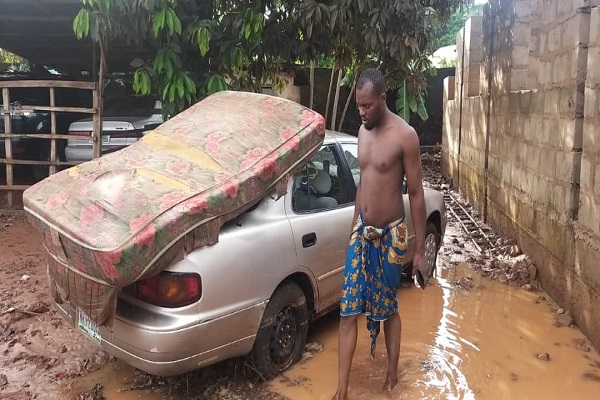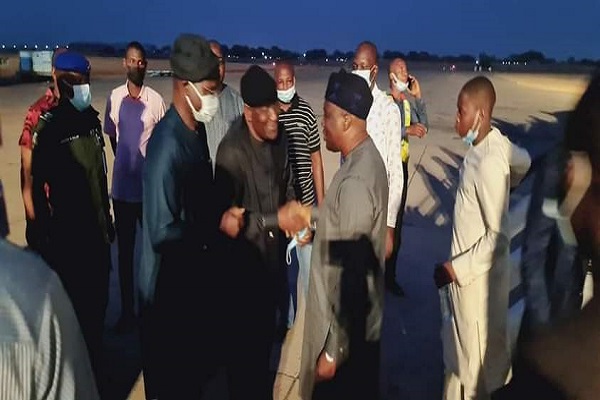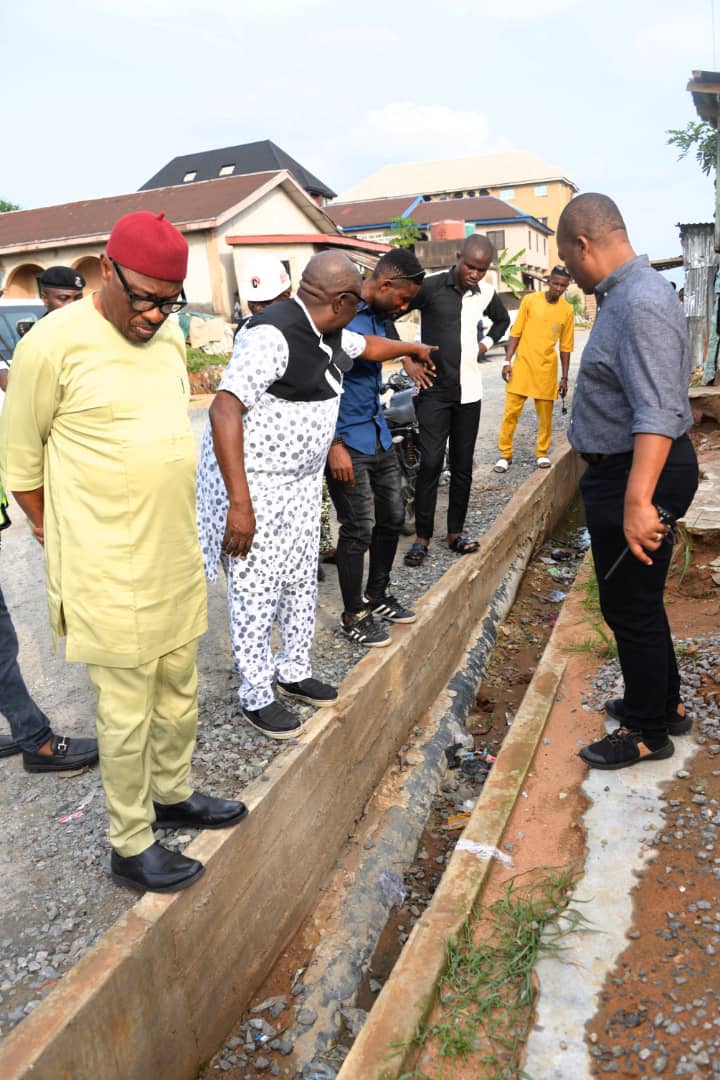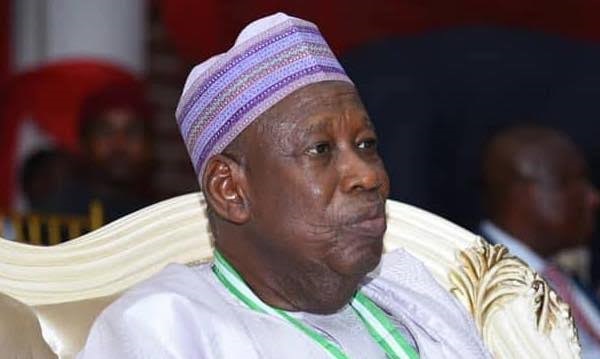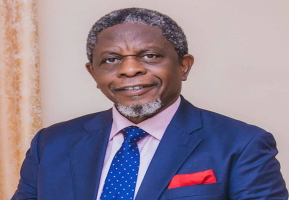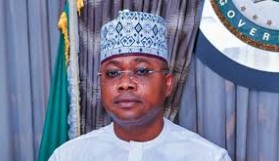Re: 2023:Ikwerre People Are NOT IGBO,Amaechi Wants To Change Our History
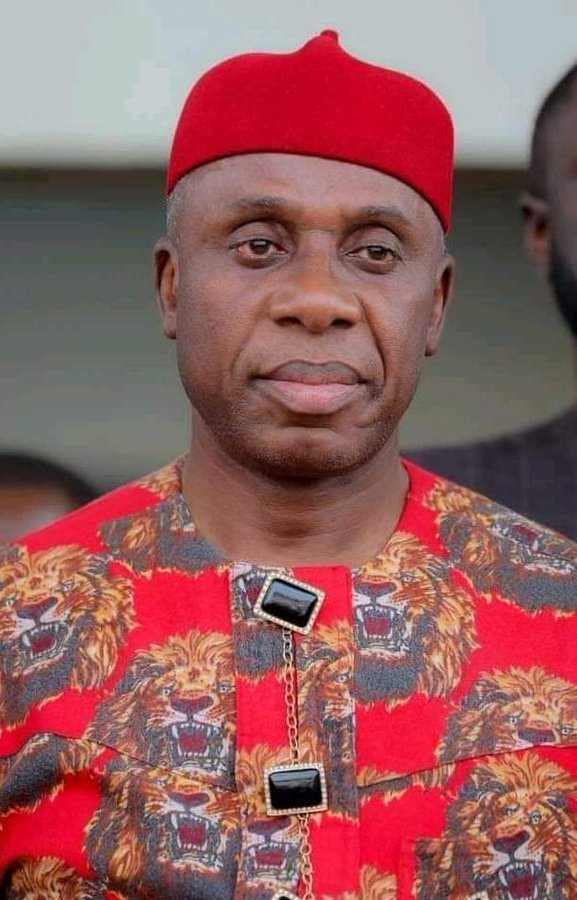
By Azubike chikere Wanjoku
Following the unsolicited vituperation of Chidi Wihioka, Former member House of Representatives at an event organised by the Bola Ahmed Tinubu support group in Elele in Ikwerre Local government area of Rivers State in allusion of the ancestry of his former friend and boss Rt Hon.Chibuike Rotimi Amaechi which was published in the Daily Post Newspaper of February 6,2022. I am compelled to take a critical look at at such claim with a view to setting the records straight.
Chibuike Amaechi is Ibo,Ubima and Ikwerre. His name tells the story and there is no doubt about that and he has always told it to whoever cared to hear.
He speaks Igbo and Ubima dialect of Ikwerre. Col. Yakubu Bako(Rtd) former Governor of Akwa Ibom State is Hausa, Elele and Ikwerre. He speaks Hausa and Elele dialect of Ikwerre, the Ohabunwas are the most popular Aros, Rumuogba and Ikwerre. They speak Igbo and Evo dialect of Ikwerre; so are others like Uche Okwukwu who is Ibo of Nri Stock,Elele and Ikwerre. He speaks Igbo and Elele dialect of Ikwerre.
The ancient town of Isiokpo, Aluu, and Omagwa is awash with Aro-Ikwerres who speak Aro, Ibo and Ikwerre. These Aro- Ikwerres went to court led by Chief Kanu Iroanya and Sixteen others in 2004 against the Federal Government of Nigeria and Rivers State Government , were awarded =N=25 billion compensation and declared a sub group of the Ikwerre Ethnic Nationality.
They speak Aro,Ibo and various Ikwerre dialects. Odegnu people of Emohua Local Government Area trace their origin to the Ekpeye area from which they lay claim to a Benin ancestry. They speak Igbo and odegnu dialect of Ikwerre. Chidi Wihioka claims a non -existent Benin lineage . He lived and grew up in Owerri, speaks Igbo fluently and Elele dialect of Ikwerre. His names are not Benin or Edoid. They are all igboid except his British first name Frank. Let him do a linguistic interpretation of his names especially now they don’t know any Ikwerre man who bears same name even in his native Elele or Northern part of Ikwerre.
For emphasis, no Ikwerre village has ever engaged in a wrestling match with any Benin village, carried their dead to Benin or paid homages/ tribute to the Benin Monarch. We have Benin migrants living in Rivers State like other peoples.
Ikwerres are a multi-ethnic quasi-cultural entity. We are not a homogeneous group but a heterogeneous group .We are a combination of aboriginal Ikwerre whose richer veins of heritage lie deep in the surface of Ikwerre soil leaving a little percentage whose blood lines have being tainted with more of ibo blood than other nationalities through marriage and other interminglings, 60% of them are ethnically Ibos who have Naturalised and other ethnicities such as Hausas in Elele,Ibibios amongst the people of Emohua local Government area-Obasi and Esi,Ijo in Emohua- those who claim migration from the Ijo speaking areas like Ogbia,Yorubas found in todays Ogbogoro and Aluu axis and those who claim to be the Edoid stock.
Many would jump out firing on all valves if I say the Northern part of Ikwerre fought a bitter war with King Nworisa of Ugbele Ekpeye in which King Nworisa claims to have defeated and ruled but the Elele people declared victory over the Ekpeye people, In post 1890, the Hausas of Elele ruled the entire Ikwerre under Ododo . He, along with his followers left behind a whole lot of their descendants who can be found at Ahoada, Elele, Omudiogna, and Borokiri areas of Port Harcourt and Chief J.N. Mpi,the first and the last Ikwerre to be conferred with Knight of Order of the British Empire stood along side Joseph Wobo of Diobu,E.J.A. Oriji of Emohua and J.H.E. Nwuke of Etche and declared before the Willinks Commission on Minorities in 1957/8 that he is Ibo,Nkarahia-Isiokpo and Ikwerre.
He ruled the entire Ikwerre until 17th May ,1970, when he was deposed by King Alfred Diete Spiff then Governor of Rivers State in an Executive Order that took effect from 30th May 1967. Obi Wali identified himself as Ibo until his disagreement with Ojukwu over the prosecution of the Civil War against the advice of Prophet Sam Wobo who counselled against it in 1966.
Okogbule Wonodi who was the first Ikwerre poet, registrar and Eze Risiohia Emeru was a founding Member of Nzuko Igbo and Ohaneze Ndi-Igbo. Ohia-Emeru is where the present Government Comprehensive Secondary Borokiri is situated. They were evicted in 1912 and finally in 1923. Chief Emmanuel Aguma, Second Ikwerre representative in Port Harcourt Municipal Council 1958-1961 after J.W.Ogbondah(1955-1958), First Ikwerre representative, Eastern House of Assembly 1961-1968, First Ikwerre principal St John’s College Diobu, Former Administrator of Port Harcourt province under Biafra,First Ikwerre Junior Minister(1979) remained a member and founding Member of Ohaneze Ndigbo till death.
This formed part of the ancestors of the Ikwerres of today’s Rivers State.
Today, Chibuike Amaechi stands tall and proud of his Ibo Ancestry and Ubima heritage as the First Ikwerre man to be Governor of Rivers State and Nigeria’s First Minister of Transportation. No one can take away that strength away from him. Only the strong among the Ikwerres can speak of their ancestry. Grouping the Ikwerres as a collective whole with a common ancestry has always been the bane of most historians even when historical facts point to varied ancestries especially the Ibo ancestry of a large number of Ikwerres.
One of the strongest preachers of the Benin ancestry of the Ikwerres, a renowned Professor was declared by the high Court in Isiokpo to be of Ibo Ancestry and has since stopped the noise of Benin Ancestry.
Persons who desecrate the microphone by blabbing about what they do not know get me peeved especially when I know they slander themselves, knowing their ancestry is not what they say. I will not stoop so low to mention names of persons blinded by jealousy who were once my colleagues in the political struggle. I pity them for they know not what they say.. they are both Ibo and Ikwerre with no attachment to the Benin people. I challenge these Ikwerre sons who have made it an assignment to vilify their former boss to make bold to state their ancestry at their next BAT Support group outing.
Like this my former colleague at arm would say ‘if you turn yourself into a plate of rice people will pour stew on you and eat you. He has turned into a full plate of rice unfortunately the rice is not properly cooked so no one is interested in pouring stew and eating him. In days to come he will fully disgrace himself.
Let me take you all on a journey into who are the Igbos and the history of the Ikwerres .
Who are the Igbos?
There is a great difference but a thin line between Ibo and Igbo. While ethnographically Ibo is the people, Igbo is the language which exceeds all considered Ibo boundaries. The thin line today is erased and replaced with the term’Ndi-Igbo’ which envelopes those who agree to be Ibos and those who do not agree. This disagreement was said to start in the 1950s and became deep seated after the Nigeria-Biafra civil war of 1967-1970.
The oldest reference to the noun ‘Ibo’ dates from 1627 when it was mentioned in a list with the places of origin of slaves. Defining the term ‘Igbo’ has shown itself to be rather chameleonic changing its meaning according to time and political climate ( Professor Afigbo,A.E. ,1981).
Dmitri Van den Bersselaar however offers a fairly simple answer as to who is Igbo , “An Igbo is somebody who considers himself Igbo, and who has link to the area in the South East Nigeria known as Igboland either because he himself was born there or his family and ancestors came from there. Being Igbo implies being able to speak one of the languages spoken in the Igbo area (at least more or less), and being familiar with at least part of the traditional cultural norms from that area. If an individual shows himself both unable to speak Igbo and ignorant about traditional culture, his claim to Igbo is likely to be rejected”.(Dmitri,1998).
Ikwerre Ethnic Identity
The term ‘ethnic group ‘ ..is an association of people bound together by felt ties of kinship or contiguity. Ethnic identity refers to the identification of members within the group. Ethnicity according to Clifford Geertz(1963) is ‘primordial attachments’ Stemming from the ‘givens’ of social existence that seem to have ‘an ineffable and at times overpowering coerciveness in and of themselves “. Common descent or linguistic homogeneity limit the application of this term.
However it is worthy of note that the Ikwerre ethnic group or nationality like other ethnicities are made of different types of characteristics which single them out in the larger igboid grouping that ranges from sudan down to East of Africa.
Before colonization there were no ibo or Ikwerre people. In the forested hinterland were hundreds of village communities with separate political units and a socially endogamous grouping with little concern for the outside world except to trade or engage in little tribal wars. Every grouping was known by the name of their assumed ancestors or an agreed name. The awakening of the Ikwerres to a common identity owed more to the forces of modernity unleashed by colonial powers than to a conscious effort of the Ikwerres.
Research reveals the existence of a group of people that predates the rise of the Benin Empire in the 1440s or the coming of the Portuguese in 1472 to the Niger Delta. These voyagers met two group of peoples, one who identified themselves as Ihura-Onhia people-a collection of hunter-gatherer natives and an advanced civilisation of trader migrants grouped together as Ibos of varying units Aros, Isus, Emekuku, Oguta etc who acted as interpreters and labourers.
In the words of Margery Perham (1937) “In Nigeria, Anthropology and administration sketch out a history of successive waves of migration …displacing those they found…imposing themselves above the earlier groups” The Aboriginal Ikwerres were met by various migration ,of which the Ibo migration was the highest and most infectious in the history of the Ihura-Onhia people with the Arochukwu people known as Aros; occupying more of present day Ikwerre Local Government Area; while the Emekuku, Orlu.Okigwe, Udi, Bende, Awka, Onitsha and Owerri, Abua and Ijaw people migrated towards the present-day Port Harcourt and Obio /Akpor Axis. The Ibo migration stretched into the Present day Emohua Local government area where it coincided with migrations from Abua, Ekpeye, Ijaw, Kalabari, Igalas and other littoral communities even as the waterfronts of Ndele, Ogbakiri, Ogbodo-Isiokpo, and Aluu et al served as transit points for slaves.
“Owing to their numerical superiority and consequent land hunger the Ibo migrants formed the bulk of the delta population during the Nineteenth century. They bequeathed their language …the tribal Ibos called them Ndi Mili Nnu (people of the salt water).”-K.O. Dike (1956).
This today has created a large population of Naturalised Ikwerre-Ibos which is 60% and the remaining 40% is shared by the Aboriginal or autochtonous Ikwerres and persons of other migrations into the geographical spread. The Ikwerre people are heterogeneous not homogeneous.
According to Professor G.O.M Tasie “The Ibo migrants formed only a part of the community and never the whole of any of the communities ” . The Ikwerres did not constitute themselves as a nation before the massive migrations by the various groups. Every Ikwerre person or village have their own history. In the words of Senator Obi Wali in telling our stories we must avoid, ” fairy tales, dreams and illusions..the twisted and senseless interpretation of history”.
Ikwerre cannot lay claim to one mythical ancestor called Akalaka or Ochichi as the case may be or Benin. These are stories smuggled into our history in 1975 by one D.A.H. Emejuru backed by Bekweri wosu and the wezina addition in their fight against the story of Arochukwu origin as told by Amabebe Nsirim of Isiokpo.
This Benin story was influenced by the 1952 work of D.O. Ewoh ” history of Ogba and their culture. A book that was greatly influenced by stories from migrants into Ogbaland from Aboh, Oguta, Ossomari and the works of J.U. Egharveba a Benin historian who mentioned the name Ogba as one of the town that existed in the time of the Ogisos in his books ‘A short history of Benin 1934 and Benin Laws and customs 1946.
Ikwerre is an aggregation of self contained towns and villages separated from each other by thick forests before the massive migrations of 1400 and this migrations have continued till today. Prof. G.O.M Tasie notes this ” any attempt to treat Ikwerre as a homogeneous group is bound to fail. …His view of Ikwerre heterogeneity arises from the variety of dialects within the Ikwerre language, funeral rites, ceremonies and the naming of weekdays etc. We are today a quasi-cultural entity. contact and long association is responsible for the improved understanding we have today.
Every Ikwerre family or village have their own story of Migration which is different from the next village hence Amaechi like any real Ikwerre son was able to decode his ancestral roots without waiting to be told by persons who do not have a hint of their ancestry.
Despite the bumptious behaviour of these former allies they cannot take away Amaechi’s pride of his ancestry, dignity and sense of justice. None of them could put a pen on paper of their career history without penning down his name and in his bid to clothe and house them, he fought the pernicious system of oppression that enveloped their existence and today they can stand on a rostrum and tell lies.
Chibuike Rotimi Amaechi usually shrugs off their behaviour with the saying ‘men come and men go, let’s say the truth at all times and stand for justice ‘
Ikwerre today is ethnically 60% Ibos,7% Aboriginal peoples and the rest will be distributed amongst others.
Nyedikne Azubike Chikere Wanjoku, a
Public Analyst writes from Apani, Ikwerre Local Government Area, Rivers State
